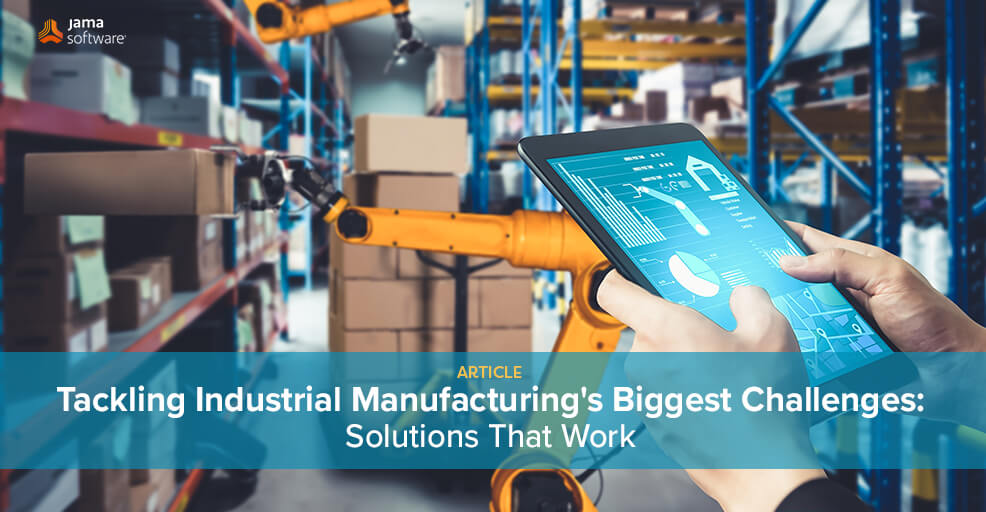Tackling Industrial Manufacturing’s Biggest Challenges: Solutions That Work
Industrial manufacturing is undergoing a transformation driven by technology, market demands, and a rapidly evolving workforce. However, this evolution brings its own set of challenges that manufacturers must navigate to remain competitive. Below, we’ll explore the top challenges in industrial manufacturing and offer practical solutions to address them.
1. Supply Chain Disruptions
The Challenge: Global events like the pandemic and geopolitical tensions have exposed the vulnerabilities of supply chains. Material shortages, delays, and fluctuating costs have become routine, making it difficult for manufacturers to meet production targets.
The Solution:
- Diversified Sourcing: Manufacturers should explore multiple suppliers, ideally in different regions, to reduce the impact of disruptions in one area.
- Advanced Analytics and Forecasting: By leveraging data analytics, manufacturers can predict potential disruptions and adjust procurement strategies to maintain inventory levels.
- Digital Supply Chain Management: Implementing technology like real-time tracking and automated inventory management systems ensures better visibility and responsiveness across the supply chain.
2. Talent Shortage and Skills Gap
The Challenge: As industrial processes become more automated and technical, there’s a growing need for skilled labor, particularly in areas like robotics, data analytics, and equipment maintenance. However, the industry faces a shortage of qualified workers due to retirements and a lack of interest from younger generations.
The Solution:
- Reskilling and Upskilling Programs: Companies can invest in training programs for existing employees, focusing on emerging technologies and technical expertise.
- Collaboration with Educational Institutions: Partnering with local schools and universities to create apprenticeship programs and internships can help build a pipeline of future talent.
- Adoption of Automation: Automating repetitive or dangerous tasks can offset the impact of labor shortages while enhancing operational efficiency.
RELATED: IEC 61508 Overview: The Complete Guide for Functional Safety in Industrial Manufacturing
3. Adapting to Industry 4.0
The Challenge: Industry 4.0 technologies, including IoT, AI, and machine learning, offer vast opportunities for improving manufacturing processes. However, integrating these technologies can be expensive and complex, especially for small and medium-sized enterprises.
The Solution:
- Start Small, Scale Gradually: Manufacturers should begin by digitizing a single aspect of their production (e.g., predictive maintenance) and expand as they see ROI.
- Cloud-Based Solutions: Cloud platforms offer scalable, cost-effective ways to implement Industry 4.0 tools without a significant upfront investment in infrastructure.
- Cross-Department Collaboration: Ensure alignment between IT, engineering, and operations teams to facilitate seamless integration and minimize disruptions during implementation.
4. Meeting Sustainability Goals
The Challenge: Governments and consumers are increasingly demanding sustainable practices from manufacturers. This includes reducing emissions, minimizing waste, and adopting environmentally friendly materials. However, transitioning to green manufacturing can be costly and complex.
The Solution:
- Energy Efficiency Audits: Conduct regular audits to identify areas where energy consumption can be reduced, whether through upgrading equipment or adopting renewable energy sources.
- Circular Economy Practices: Embrace recycling and remanufacturing to minimize waste, both in production and post-consumer use of products.
- Collaboration with Stakeholders: Partner with suppliers and customers to promote sustainable practices across the entire value chain.
5. Cybersecurity Risks
The Challenge: With the growing adoption of digital technologies comes an increased risk of cyberattacks. These attacks can disrupt production, compromise sensitive data, and damage a manufacturer’s reputation.
The Solution:
- Regular Security Audits: Conduct frequent assessments of your digital infrastructure to identify and address vulnerabilities.
- Employee Training: Train staff on cybersecurity best practices, particularly in recognizing phishing attacks and securing devices.
- Robust Incident Response Plans: Develop and test response plans to minimize downtime in case of a cyberattack, ensuring quick recovery and damage mitigation.
RELATED: The Top Challenges in Industrial Manufacturing and Consumer Electronic Development
6. Maintaining Operational Efficiency Amid Complex Demands
The Challenge: Manufacturers are under pressure to produce more custom products, reduce lead times, and improve quality—all while maintaining efficiency. Meeting these demands often strains existing processes and resources.
The Solution:
- Lean Manufacturing: Implement lean principles to eliminate waste in production and streamline processes, improving both speed and efficiency.
- Automation and Robotics: Invest in robotic process automation to handle repetitive tasks, reducing human error and speeding up production.
- Flexible Manufacturing Systems: Adopt systems that can easily switch between different product types, accommodating the increasing demand for customization without sacrificing efficiency.
Conclusion
Industrial manufacturing is facing unprecedented challenges, but with the right strategies and technology, companies can navigate these obstacles and position themselves for long-term success. From investing in workforce development to embracing digital transformation, the solutions are within reach. By proactively addressing these challenges, manufacturers can enhance their competitive edge in an increasingly dynamic market.
Note: This article was drafted with the aid of AI. Additional content, edits for accuracy, and industry expertise by Steven Meadows and Kenzie Jonsson.
- Tackling Industrial Manufacturing’s Biggest Challenges: Solutions That Work - October 24, 2024
- How to Overcome Development Challenges: Collaboration & Alignment in Complex Product, Systems, and Software Development - August 13, 2024
- How to Overcome Development Challenges: Proving Regulatory Compliance in Complex Product and Systems Development - July 24, 2024
